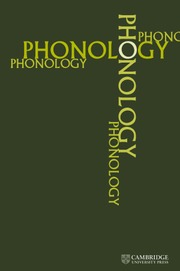Article contents
Defying the stimulus: acquisition of complex onsets in Polish*
Published online by Cambridge University Press: 14 August 2017
Abstract
Behavioural findings indicate that English, Mandarin and Korean speakers exhibit gradient sonority sequencing preferences among unattested initial clusters. While some have argued these results support an innate principle, recent modelling studies have questioned this conclusion, showing that computational models capable of inducing generalisations using abstract phonological features can detect these preferences from lexical statistics in the three languages. This paper presents a computational analysis of the development of initial clusters in Polish, which arguably presents a stronger test of these models. We show that (i) the statistics of Polish contradict the Sonority Sequencing Principle (SSP), favouring sonority plateaus, (ii) models that succeed in the other languages do not predict SSP preferences for Polish and (iii) children nonetheless exhibit sensitivity to the SSP, favouring onset clusters with larger sonority rises.
- Type
- Articles
- Information
- Copyright
- Copyright © Cambridge University Press 2017
Footnotes
For valuable discussion on aspects of this work, I am grateful to Robert Daland, Adam Albright, Colin Wilson, John Kingston, Ewan Dunbar, Stephanie Shih and audiences at the 23rd Manchester Phonology Meeting and the 38th GLOW workshop on implications of computation and learnability for phonological theory.
References
REFERENCES
- 14
- Cited by


